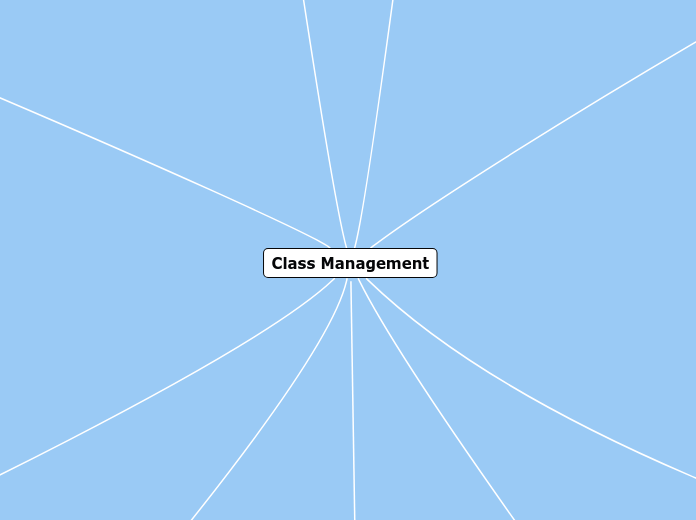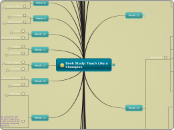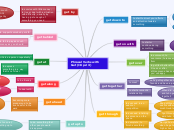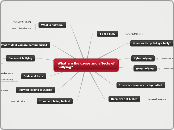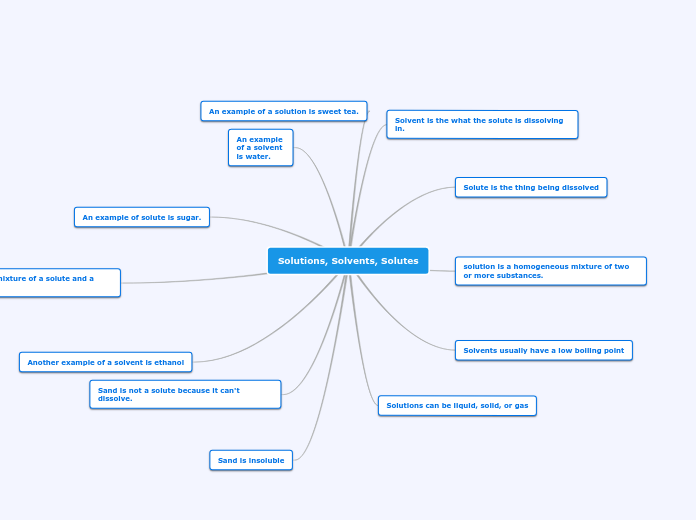https://blog.citl.mun.ca/instructionalresources/netiquette/
http://www.spencerauthor.com/virtual-meeting/
https://goodcolleges.online/study-tips-for-success/
https://www.thebalancesmb.com/computer-file-management-tips-2948083
Involve Parents/Guardians - Educate regarding online safety
Safety - Identify the dangers associated with sharing personal information & understand how data can be tracked and used
TDSB - Remote Learning: Support & Resources for educators
Poster highlighting virtual classroom rules
TIPS FOR ONLINE STUDENTS
TO WORK SUCCESSFULLY IN
VIRTUAL GROUPS
Possible solutions you could put in place
Preventative measures you could put in place
Supports available to help you address these issues
Resources avaliable for further reading?
What is the problem?
Class Management
Group Work
Establish norms & expectations for collaborative work
Task delegation
Group members breakdown & delegate assignment responsibilities.
Group members will be responsible for completing individual tasks. Creating shared responsibility within the group
Incorporate a reflection component. Individual group members will reflect on what specifically they contributed towards the overall group assignment
Task will provide insight regarding the division of labor within the group
Allows students to gain a better understanding about what worked well & what could be improved on
Provides teachers with insight regarding future assignments/ individual grades based on contribution
Coordination costs - Time spent trying to schedule agreed upon meeting times (via. video conferencing) to brainstorm/communicate, delegate tasks, etc.....
It can be difficult sometimes for all group members to meet and participate in synchronous learning due to varying schedules
Motivation costs
Some group members may not contribute evenly towards completing group assignments. Leaving other members to pick up the slack in order to complete tasks
Allocating time
Individuals may have a finite amount of time to complete tasks and meet assignment deadline. Making it difficult to allocate additional time to meet with group members
https://www.online.drexel.edu/news/group-tips.aspx
Discipline
https://www.google.com/search?sa=X&sxsrf=ALeKk03WM2FYL8dsm6mwVLNxhyEYy8NOEg:1605642028490&source=univ&tbm=isch&q=virtual+classroom+rules+and+expectations&safe=strict&ved=2ahUKEwiw_fnVqortAhX3HjQIHQhXCFQQjJkEegQIAxAB&biw=1536&bih=754&dpr=1.25#imgrc=nj_DiX5jsn-QqM
Disruptive behavior
Playing distracting/inappropriate music
Interruptions during live class lessons
i.e. interrupting teacher or cutting students off mid-sentence
Distractions within the home learning environment
Establish structure & expectations
Display within the learning environment as a visual reminder for students
Provide students with a voice by involving them within the process of establishing class norms and expectations
Student voice - students are more like to adhere to rules they had a say in creating
Address issue immediately
Follow up by discussing the matter through video conferencing
Establish a Positive Rapport with students will help to decrease classroom disturbances
Be Consistent in implementing/enforcing classroom rules
Consistency shows students you have follow through and they will be held accountable for thier actions
Completion of Assignments
21 Study Tips for Online Classes Success
Self-motivated – Set daily and/or weekly goals in order to stay on top of course work
Create a learning environment free of distractions and conducive to learning
Set aside time each day to complete tasks
Make sure your devices are compatible with the course LMS & have access to consistent/reliable internet connection
Alternative option download required material to be viewed offline at a later time
Enter with an open mindset
Become an adaptive learner – Open to alternative learning strategies and technologies
Develop strategies to improve time management skills
Incorporate an on-line study calendar that provides notifications for upcoming tasks/assignments
Create a todo list/ task checklist
Digital Literacy skills
Time Management
Self-Motivation
Adaptability Struggle
Some students may struggle transitioning from traditional to online learning environments
Technical Issues
availability and connectivity
Attendance
Contact and establish a line of communication with students parents
Be Creative
Take time to understand what interests students
What their challenges are
Where their strengths lie
Keep subject matter interesting and engaging
Connect with students by establishing a positive rapport
Positive relationships can translate to better attendance and engagement in class.
Lack of understanding class material
May have obligations that make it difficult to attend online classes at a specific time
Lack of interest in class material may correlate to decreased engagement levels. Leading to lower attendance in class
Poor attendance can translate to
Lower Grades
Lower Productivity
Lower Engagement Levels
Can be difficult for students to maintain regular attendance within an online environment
5 Ways to Boost Attendance in Virtual Class Meetings
Cyberbullying
Solutions/ Benefits
Students will have a better understanding of how to conduct themselves accordingly during online activities
Connect, communicate, and educate parents
Educate and generate awareness by creating an open/on-going dialog with students regarding appropriate online activities
Intervention strategies that support "targets" and "perpetrators" at various levels (i.e. class room, school wide approach, parents, and local community supports)
Establish clear rules and expectations regarding online behavior
Report Cyberbullying
Protect your account
Refrain from sharing personal info, passwords. or phots
Verbal and/or Emotional Abuse
Negatively affecting students mental health
Social Bullying
Creating fake accounts or impersonating someone with the intention to deceive others. Also known as "Spoofing"
Spreading rumors and/or photo's
Excluding an individual from group activities
Parent Resources: https://mediasmarts.ca/cyberbullying/resources-parents-cyberbullying
Parents guide to Cyberbullying: https://mediasmarts.ca/teacher-resources/parents%E2%80%99-guide-cyberbullying
Netiquette
Sharing private information and/or inappropriate material with others
Overuse of CAPS, exclamation points, and abbreviations
Using course, rough or rude language
Flamming
Comments can be easily misinterpreted. Creating scenario's for possible conflict
Preventive Measures
Don't post or share (even privately) inappropriate material
Respect other's privacy
Tone down the use of strong language (i.e. exclamation points and all CAPS)
Be clear & concise with comments to avoid being misinterpreted
Use proper language, grammar, spelling, and try to avoid using abbreviations when possible
Be careful when using sarcasm & humor (Tone is hard to read online)
Be polite, respectful, and friendly when communicating with others
Instructional Resource: Netiquette
Plagiarism/Copyright
Support & Resources - For students to better understand and avoid plagiarism
Northwestern University on Avoiding Plagiarism - Includes definitions, tips for avoiding it, and examples of acceptable paraphrasing. http://www.writing.northwestern.edu/avoiding-plagiarism/
Avoiding Plagiarism - Includes general information for avoiding plagiarism https://www.hamilton.edu/academics/centers/writing/style/avoiding-plagiarism
Model proper citation practices (i.e. worksheets containing questions or examples regarding proper citation)
Encourage on-going academic integrity
Establish and enforce consequences
Plagiarism detection tools
Solutions/Benefits
Be avaliable for individual student-teacher meeting (Via. video conferencing. will help to provide students with greater clarity.alleviate any further uncertainy they may be having towards the assignment)
Provide ample class time for students to ask questions regarding upcoming assignments
Use popular/relevant social/media platforms as constructive examples in order to compare and contrast with.
Introduce "Teaching about citation at a younger age" and have discussions about "How" and "When" citations should be used.
Problems
Causes
Failed attempt to "paraphrase" content and cite sources
Lack of effort, interest, and/or understanding regarding the assignment
Essay Mills (online websites where you can buy and/or trade essays on various subject matter
Influenced by social media regarding citations
Easy access to content (via. Internet)
Poor time management
Safety on the Internet
Access to age inappropriate material (via. websites)
Theft of personal information
Potential risk for cyberbullying/predators
Preventative Measures
Teach students about online privacy/safety
Teach students to NEVER reveal/share personal information (even privately)
Individuals digital footprint (i.e. sharing personal photos)
Teach digital literacy skills
Information - Poses the ability to locate, evaluate, and properly use information
Social - Learn how to interact within an online environment
Media - Learn how to "READ" media
Support & Resources
https://www.tdsb.on.ca/Remote-Learning-Supports-and-Resources-for-Educators/Digital-Learning-Tools/Online-Safety
Management of documents, handouts and student files
Problem
Generate a "step by step" visual students can refer to continually throughout the course
Documents are stored improperly (i.e. correct format) or misplaced
Preventitive Measures
Create screencast tutorial to identify and go through how/where to save files & in what format
Create a step by step visual students can refer to continually throughout the course
Research & Supports
10 File Management Tips to Keep Your Electronic Files Organized
BY SUSAN WARD
